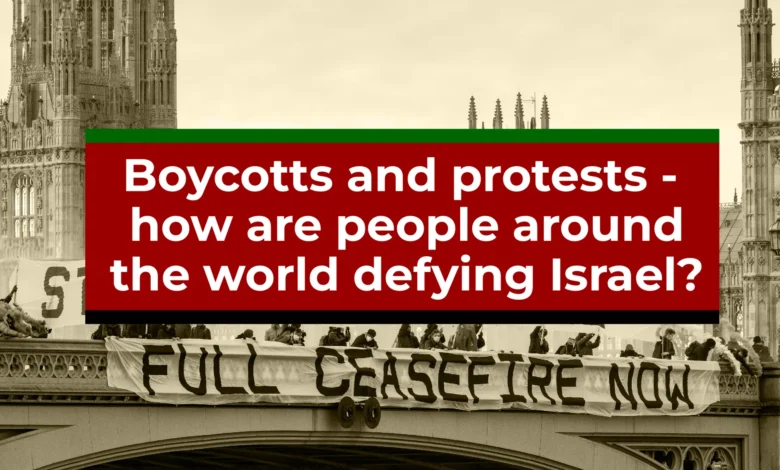Impact of Economic and Corporate Support for Israeli Apartheid

A political boycott of Israel seeks to force the country to abide by the law, and the Boycott guide desires to encourage firms to cease supporting the apartheid system in Israel. Because Israel’s economy is export-oriented and it also relies on foreign investment, boycotts are a severe threat to it. Several companies like G4S and Hewlett-Packard are yet to realise their main business is supporting Israel’s repressive state. These boycotts, regarded as economic, may be more potent and efficient in creating political consciousness and calling together collective efforts.
Late in 2014, Starbucks‘ Middle East franchisee, Alshaya Group, pointed to this trend when it planned to shed 2,000 jobs due to ‘more challenging trading conditions. ‘ The latest companies to experience boycott action are McDonald’s, Amazon, and Coca-Cola, all of which have been accused of supporting Israel.
This has been mainly occasioned by the ongoing conflict in Gaza, especially with people making more posts on social media platforms like x( previously Twitter) and TikTok. Other boycott movements have been supported by mobile applications such as NoThanks and Buycott, which enable users to identify companies to shun.
However, the question remains: Are boycotts sufficient to effect change on their own? Although they damage the affected corporation’s bottom line, boycotts must be accompanied by political activism to affect change.
Erica Chenoweth of Harvard has found that to be as little as 3%. This is because 5% of the population can bring about political change, proving that political change is not for the entire society but for a group ready to push for change. Other examples include the successful boycotts of South Africa because of the apartheid policies, where boycotts were complemented by activism and pressure from politicians.
The BDS movement started in the year 2005, is an international campaign which uses economic and political means to pressure Israel to withdraw from Palestine. Starbucks and McDonald’s are complaining about slower growths in specific markets, and some pension funds across Europe are sourcing Israeli businesses. Veilev, one of Denmark’s most significant funds, and Norway’s Pension Fund, which recently sold $500 million of Israel bonds, exemplify this new trend.
Universities and other academic institutions also participate in the boycott exercises. Since October, the students of several universities in the US and Europe have boycotted Israeli companies by passing a vote of no confidence in the companies. In an Israeli study delivered at Knesset, the Arab world and Europe are systematically removing Israeli academics from their forums, eroding the country’s scientific position and economic power.
This has yet to spare the cultural sphere. Celebrities like Taylor Swift and Beyoncé have declined live performances in the country, citing political influence, while bands like Rage Against the Machine and Cypress Hill are for a boycott.
Nevertheless, there have been corresponding movements from below in Western countries, and the governments here have yet to be very receptive. Some countries, such as the United States and the United Kingdom, have gone to great lengths to enact laws that would restrict boycott activities against Israel.
This legal backlash poses a significant challenge to the boycott movement. However, the support from the West for Israel is slowly fading, especially with activists from human rights organisations putting pressure on governments to stop the sale of arms and voice concern over the attacks carried out by Israel in Gaza.
Consequently, if general economic boycotts may help to increase people’s awareness and reduce companies’ revenues, they must be supported by political initiatives to effect fundamental changes. It should be noted that such objectives can be successfully attained only through people’s and governmental actions.




